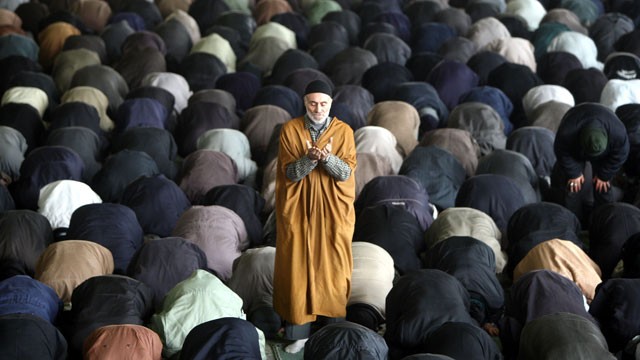From ABC NEWS
Religion Deserves More Study by Scientists, Say Researchers
They aren't trying to convert anyone. They just think it's high time for scientists to stop ignoring something that plays a critical role in the lives of billions of people around the world.
Here's the problem, as seen by Atran, of the University of Michigan, Ann Arbor, and his coauthor, social psychologist Jeremy Ginges of the New School for Social Research in New York City:
Religion can shape a society in which it flourishes, bringing about mutual trust and solidarity and sacred rituals that are so powerful that citizens are willing to kill or die for the good of the community.
But religion can also hinder a nation's ability to work out differences with its neighbors, especially if the neighbors don't have a clue as to what that religion is all about.
And, according to the authors, that's precisely the mess we find ourselves in today.
We go to war without understanding the deep seated drives and dreams of adversaries who see a very different world. Atran and Ginges think scientists should pay more attention to that.
"Science can help us understand religion just as much as it can help us understand the genome or the structure of the universe," Atran said. So why aren't they more willing to dig into religion?
Probably, said Atran, because most scientists are "non-religious, including myself. If you look at the National Academy of Sciences well over 90 percent are non religious."
That may explain why some of the bestselling books by scientists aren't about science as much as they are about religion, or the reasons why it's no longer necessary to believe.
Atran was particularly critical of a cadre of scientists called the "new atheists" who have aggressively sought to discredit all religions, contending in general that science has now answered the questions that only religions could answer in the days before evolution.
"The idea that we can simply wish this (religion) away, or argue it away, is crazy," he said. "Arguing that facts and reason will get rid of religion is crazy. We sprinkle some kind of magical reasoning dust around and everyone becomes reasonable?"
Or, as the study puts it: "seemingly contrary evidence seldom undermines religious belief."
The researchers argue that incredibly few wars are started by religions, but once they start, religion -- and the values it imposes -- plays a central role.
"In fact, explicit religious issues have motivated only a small minority of recorded wars," they write. "There is little religious cause for the internecine Russian and Chinese conflicts and world wars responsible for history's most lethal century of intergroup conflict."
Even suicide bombers do not act purely on religious grounds, Atran contends. He has met with failed bombers in Indonesia, Gaza, Morocco and elsewhere and found them generally a bland group who had been "infected" with the "bug" of radicalism, according to his testimony to Congress. They are infused with "sacred values," including devotion of the state.
The same issue of Science also chronicles the work of Robert Pape, a political scientist at the University of Chicago, who has studied 2,200 suicide attacks between 1980 and 2009. Pape and his colleagues contend their research shows "strong confirmation for the hypothesis that military occupation is the main factor driving suicide terrorism."
They are not sacrificing their own lives for religion. They are doing it for the land. Thus, they conclude, no nation should become an occupier unless it is clearly welcome.
Yet religion plays a role, even in suicide bombing, in that it programs people to be willing to sacrifice all in defense of a "sacred value."
"A study we did on Iranians shows that having a nuclear program has nothing to do with religion," Atran said. "But it has become a religious subject for at least 13 percent of the population, and those 13 percent are closest to the regime. And so they now believe a nuclear program is bound up with the notion of national identity and with Islam itself."



No comments:
Post a Comment